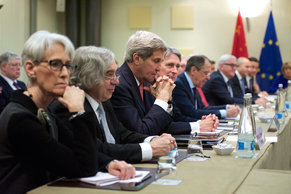Political Mandate
A political mandate are the promises made by a political party or politician that help them to get elected. This is a type of authority that is generated by democratic will and the consent of the governed. A political party that wins an overwhelming majority is said to have a strong mandate whereas a party that barely wins or that forms a coalition has a weak mandate. For example, a political party that wins 70% of seats on a promise to make education free would have a strong mandate to reduce the cost of education.Implementation of Laws
Mandates are often used to implement laws. Unlike laws that are codified at a point in time, mandates are typically temporary directives that respond to real world conditions. Where a mandate derives its authority from a law, this can be viewed as implementation of that law. For example, if a government agency is responsible for the hygiene of restaurants under the law they may issue a mandate to restaurants to ban some unhygienic practice. The mandate itself isn't a law but its authority may be rooted in a law.Implementation of Policy
Mandates are often used to assign a mission and goals to a international organization, government department, program, project or a team. In the case of a government, these would be issued by the executive branch with authority to command a government department. The scope of these commands may be constrained by the law. For example, a politician may have authority to mandate a public parks department to extend the hours of parks in summer. The same politician may not have the authority under the law to mandate the same public parks department to sell or lease large tracks of land to a corporation.| Overview: Mandate | ||
Type | ||
Definition | An authoritative command. | |
Used To | Implement will of the electorateImplement a lawImplement a policy / strategy | |
Related Concepts | ||

































